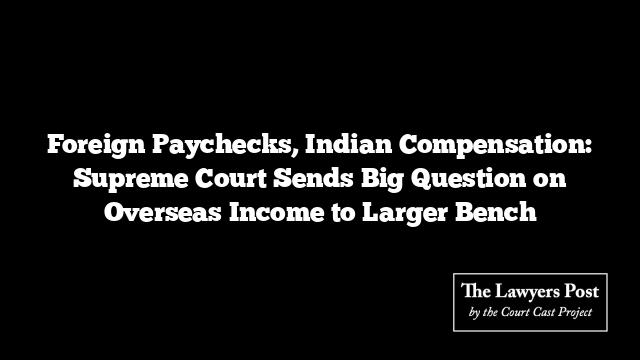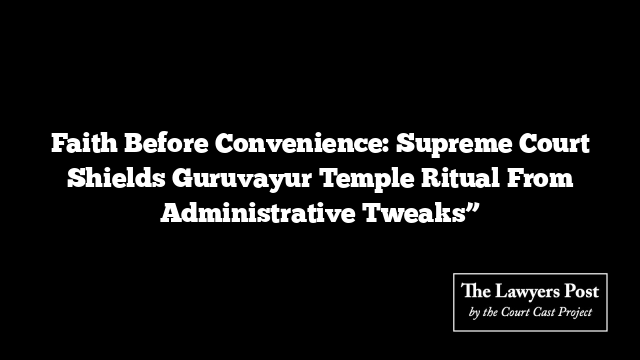When an Indian working abroad dies in a road accident, how should their income be valued back home? Should the court take their full foreign salary as it is—or trim it to reflect Indian living standards? The Supreme Court has decided this thorny question deserves a deeper look, referring the issue to a larger Bench for a conclusive ruling.
A Bench of Justices Rajesh Bindal and Manmohan made the referral while hearing the case of Tharunoju Eshwaramma and her family, whose 27-year-old son, Hari Shankar Brahma, lost his life in a 2009 road accident. Brahma was employed in New Jersey as a System Analyst with Nihaki Systems Inc., earning an annual salary of about USD 47,000—roughly ₹21 lakh.
The Motor Accident Claims Tribunal had computed compensation at ₹63 lakh, applying the usual deductions and multiplier. The Telangana High Court, however, slashed his annual income to ₹7 lakh, reasoning that he was on a temporary contract. It then recalculated the compensation to ₹83.63 lakh—ironically increasing the total but based on a sharply moderated income and a higher deduction of 50% for personal expenses.
The family challenged that logic before the Supreme Court, arguing that the High Court effectively punished them twice: once by cutting the income and again by applying a higher deduction.
The top court noted that Indian jurisprudence on this point has been split. One line of rulings—such as Shyam Prasad Nagalla, Kulwinder Kaur, Ashish Kulkarni, and Ramla—treats foreign income at face value, applying only standard deductions and multipliers. Another set—like Chanderi Devi and Deo Patodi—insists that income earned abroad must first be “moderated” to match Indian economic realities before further deductions.
Calling the matter one of “wide ramifications” given India’s large overseas workforce, especially in the IT sector, the Bench said the law must speak clearly on whether foreign income can be discounted—and if so, by what formula.
The judges noted that any future guidance must also account for variables like the cost of living in the host country, whether the deceased’s dependents lived abroad or in India, and how much money was regularly sent home.
Finding the present precedents too inconsistent to stand on their own, the Supreme Court directed the matter to be placed before the Chief Justice of India to constitute a larger Bench. The outcome could redefine how courts measure financial loss when tragedy strikes Indians working across borders.




